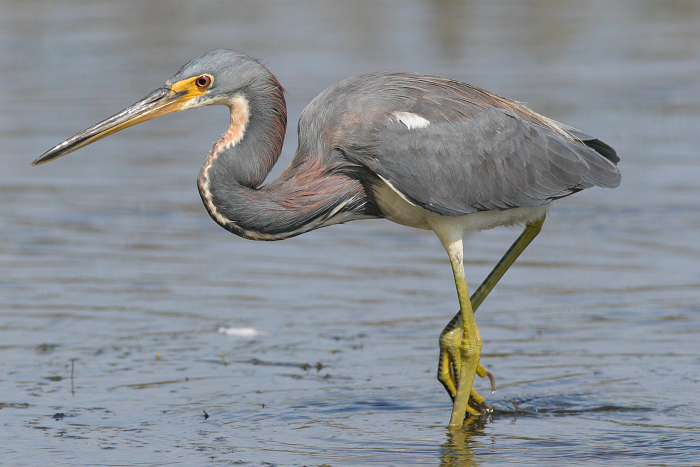
Date: 2006-09-30
Lens: Canon 600mm IS F4

 Tricolored Heron
Egretta tricolor
Tricolored Heron
Egretta tricolor
 Description
DescriptionFormerly known as the "Louisiana Heron", the Tricolored Heron feeds on small fish, crustaceans, reptiles, amphibians, insects, snails, and other invertebrates. Despite its relatively small size, it will often forage in deep water with its legs completely submerged.
General: 24 to 26 inches in length. Sexes similar.
Adult Alternate: Slate-gray upperparts, head, and wings. Slate-gray neck with white stripe on foreneck and rusty-brown plumes on lower neck. White belly. White plumes on rear of head. Rusty-brown plumes on back during the breeding season. Bluish-gray bill with black tip and variable amounts of yellow extending from the base. Long, pointed bill. Yellowish-green legs and feet.
Adult Basic: Lacks plumes and has rusty-brown wasth over neck, upper breast, upper back, and wings.
Juvenile: Similar to adult basic.
Swamps, coastal ponds, marshes, rivers, mangrove islands, mudflats, and lagoons.
 Nesting
Nesting3-4 pale blue eggs. The eggs are incubated by both parents and have a 21-25 day incubation period. Fledging occurs in 35 days. The nest is a platform made of stems and twigs and lined with fine material, such as grass. Often nests in mixed-species colonies.